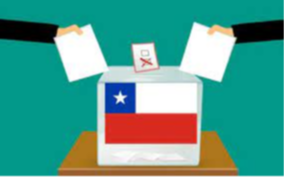
Elections and scandals in Chile
By Guillermo Alvarado
Elections for mayors, governors, regional councilors and city councilors will be held in Chile this weekend, on Saturday and Sunday, amid a series of scandals involving the judiciary, the executive and powerful businessmen.
Until recently, these elections were seen as a kind of thermometer for what will happen in the parliamentary and presidential elections scheduled for next year, but the serious events of recent months have given them a different character.
It all began with the emergence of recordings of a meeting between the powerful criminal lawyer Luis Hermosilla, his partner Leonarda Villalobos and the businessman Daniel Sauer, in which they admitted to paying bribes to public officials in exchange for privileged information.
This was the starting point of a scandal that revealed a network of corruption and influence peddling that reached the Supreme Court, led to the disqualification of a judge and continues to haunt former government officials of the late president Sebastián Piñera, as well as businessmen who benefited from Hermosilla's shady dealings.
In the midst of this, it emerged that former Education Minister Marcela Cubillos, now a right-wing candidate for mayor of the capital's wealthy Las Condes district, was receiving a high salary at the private University of San Sebastián while she was out of the country.
For doing virtually nothing, Cubillos was paid more than $18,000 a month, far more than a top academic earns.
Just when things seemed to be calming down, a rape accusation was made against the Secretary of the Interior, Manuel Monsalve, the government's strong man in the fight against crime and organized crime.
This has triggered a major crisis in the executive, presided over by Gabriel Boric, which is far from over, and has increased the population's distrust of the institutions on the eve of the elections.
In this way, a vote intended to signal preferences for 2025 could well turn into a rebuke of the entire political class in general and the privileges of the wealthiest sectors.
It is not expected that there will be a large abstention, as would normally be the case, since voting is compulsory in Chile and absenteeism is punishable by heavy fines, but we will have to wait and see what happens with blank or null ballots or the election of independent candidates. We shall see.

